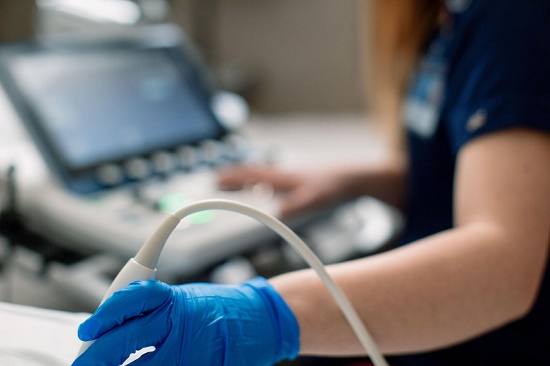-
Cardiovascular
AI-enhanced echocardiography improves early detection of amyloid buildup in the heart

ROCHESTER, Minn. — An artificial intelligence (AI) model developed by Mayo Clinic and Ultromics, Ltd., an AI echocardiography company based in Oxford, England, is highly accurate in screening for cardiac amyloidosis, a rare and progressive type of heart failure, according to a new study. The model is the first and only AI tool of its kind.
Researchers from Mayo Clinic and Ultromics, with investigators at the University of Chicago Medicine and collaborators around the world, validated and tested the model on a large and multiethnic patient population and compared its abilities to other diagnostic methods for cardiac amyloidosis.
Their findings, published in the European Heart Journal, show that the AI model was highly accurate, with 85% sensitivity (correctly identifying those with the disease) and 93% specificity (correctly identifying those without the disease). Using a single echocardiography videoclip, the model was effective across all major types of cardiac amyloidosis and distinguished it from other conditions with similar characteristics.
Cardiac amyloidosis is a life-threatening condition where an abnormal protein, called amyloid, builds up in the heart, causing it to stiffen and not work properly. It is often missed because the symptoms and imaging features can be similar to other heart conditions. However, early diagnosis is crucial because new drug therapies are now available that can slow or stop the disease's progression.
This work builds on the previous experience of Mayo Clinic and Ultromics in developing an AI echocardiography model to detect heart failure with preserved ejection fraction (HFpEF), which received Food and Drug Administration (FDA) clearance in 2022. HFpEF is a common type of heart failure, associated with high morbidity and mortality, but can be challenging to diagnose. An estimated 15% of patients with HFpEF have cardiac amyloidosis.

"This AI model is a breakthrough tool that can help us identify patients earlier so they can receive the treatment they need," says Patricia Pellikka, M.D., a cardiologist at Mayo Clinic and past director of the Mayo Clinic Echocardiography Lab in Rochester. "We found that AI performed better than traditional clinical and transthoracic echo-based screening methods, providing clinicians with stronger insights on which to base decisions for further confirmation tests. New treatments are available for cardiac amyloidosis but are most effective if administered early in the course of the disease." Dr. Pellikka is senior author of the study.
The amyloid AI model is FDA-cleared and is currently being used at multiple centers in the U.S. Dr. Pellikka says she looks forward to applying this technology in the clinical practice at Mayo Clinic.
This study was partially supported by a grant from Ultromics and Dr. Pellikka is supported as the Betty Knight Scripps-George M. Gura, Jr., M.D. Professor of Cardiovascular Diseases Clinical Research at Mayo Clinic. Mayo Clinic has a financial interest in this technology and will use any revenue it receives to support its not-for-profit mission in patient care, education and research.
###
About Mayo Clinic
Mayo Clinic is a nonprofit organization committed to innovation in clinical practice, education and research, and providing compassion, expertise and answers to everyone who needs healing. Visit the Mayo Clinic News Network for additional Mayo Clinic news.
Media contact:
- Terri Malloy, Mayo Clinic Communications, newsbureau@mayo.edu







